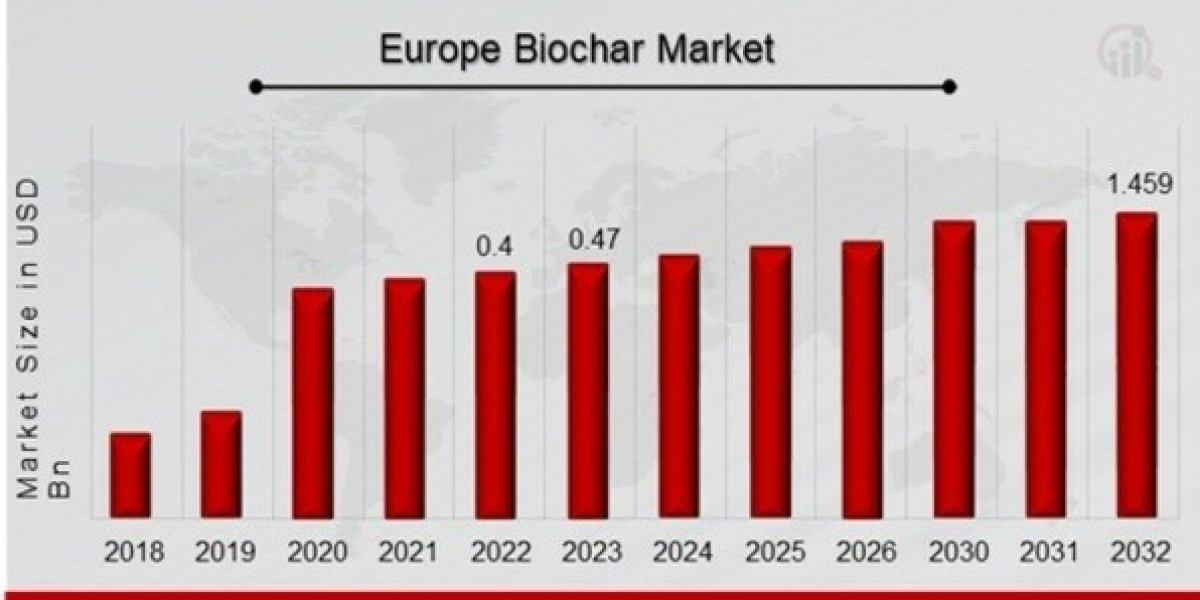The Europe Biochar Market is experiencing significant growth as the region increasingly prioritizes sustainable agricultural practices, carbon sequestration, and renewable energy solutions. Biochar, a charcoal-like substance produced through the pyrolysis of organic biomass such as agricultural waste, wood chips, or manure, is gaining traction across European countries for its wide-ranging environmental and agronomic benefits. It is primarily used as a soil amendment that enhances soil fertility, improves moisture retention, reduces nutrient leaching, and promotes microbial activity—all crucial elements for modern sustainable farming systems.
In Europe, where environmental consciousness and regulatory frameworks are strong, the adoption of biochar is being driven by both public and private sector initiatives. Governments and environmental agencies are encouraging the use of biochar through subsidies and research funding, recognizing its potential to support climate goals. One of biochar's most attractive features is its ability to capture and store atmospheric carbon for hundreds to thousands of years when applied to soil, making it an effective tool in the fight against climate change. This has positioned biochar not only as an agricultural input but also as a key component of Europe's carbon credit and emission reduction strategies.
The market demand is particularly strong in countries like Germany, the United Kingdom, France, and the Nordic nations, where sustainable agriculture is a top priority. These countries are exploring biochar's use in organic farming, composting, animal feed, water treatment, and even construction materials. Innovative applications such as using biochar in green roofs, filtration systems, and asphalt mixtures are also being tested, reflecting the material's versatility and growing commercial interest.
In addition to environmental benefits, biochar provides economic advantages for farmers and agricultural enterprises. By improving soil structure and nutrient efficiency, biochar can reduce the need for chemical fertilizers and irrigation, leading to lower operational costs over time. This aligns with Europe's broader goals of reducing dependency on synthetic inputs and promoting regenerative agriculture. Moreover, many European biochar producers are integrating waste management into their operations by converting agricultural residues and forestry waste into valuable biochar, thereby closing the loop on resource utilization.
Technological advancements are also fueling market expansion. Pyrolysis technology—the process through which biochar is produced—has become more efficient, scalable, and cost-effective. Modern systems are now capable of not only producing high-quality biochar but also capturing valuable by-products such as bio-oil and syngas , which can be used for energy generation or industrial purposes. This multi-product approach is attracting attention from both agri-tech startups and energy companies looking to diversify into bio-based solutions.
The regulatory environment in Europe is favorable, with increasing emphasis on carbon farming and sustainable land management. The European Union's Green Deal and the Common Agricultural Policy (CAP) have incorporated sustainability targets that align well with the benefits of biochar application. Certification systems, such as the European Biochar Certificate (EBC), are helping to standardize the market, build trust, and ensure quality and safety for end-users.








